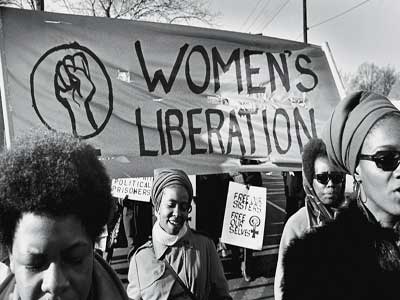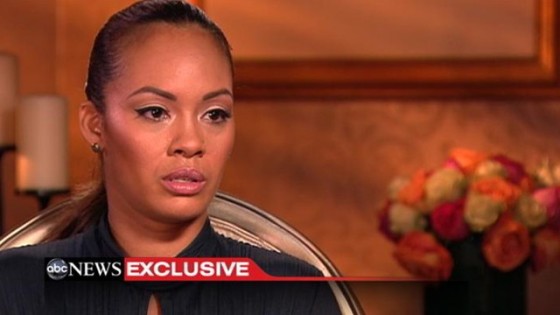
Author Archives: stephsodopeee
I am the Glute Guy and Here are My Secrets!
In this article I’m going to try to please the male readers, female readers, and trainers. If you’re simply looking for a good butt workout then skip down to the bottom of this article. But if you want some substance and you really want to understand the glutes, then you should probably read the entire article.
Ladies
Okay ladies, you say you want a nice butt. You like to talk about how you’re going to get your butt into top shape. You get envious when you see a woman with a perfect butt prancing around. Well here’s your opportunity! I’m going to give you the ultimate program to improve the appearance of your butt. Best of all, it’s free!
The World’s Best or Worst Relationship Advice Ever…
I’ve trained enough women in my time as a personal trainer to know that most of them would do just about anything to…
View original post 5,789 more words
NeNe Leakes Goes Into Business With Kim Kardashian
How To Succeed in Calculus Class and Why it is Worth It
Grilled Chicken over Cilantro Lime Rice
No More Excuses: 10 Workout Routines You Can Do In Your Living Room
Lemon Blackberry Cream Puffs with Dairy-Free Pastry Cream
Must try!
Sometimes food blogging is hard, guys. I don’t mean hard as in, “Oh no, well I guess *someone* has to eat these cream puffs, wink wink” – although it is that too. I mean hard as in sometimes it takes 3 weekends of baking to develop the recipe you’re after and then your photos turn out kind of lackluster and you still haven’t even written up the post and recipe to go with them yet.
Thank goodness there are cream puffs or I would quit this job ASAP.

(Fun fact: Food blogging is not actually my job! I have a day job that involves me doing computer-y things at a computer all day long. I don’t actually get paid for blogging… except in baked goods. I think we can all agree that’s almost as good as money.)
It’s been one of those months where keep this little blog going has…
View original post 1,177 more words
Blog #5
In chapters 11 and 12, Patricia Hill Collins discusses Black feminist epistemology and how it relates to Black women’s empowerment. She defines epistemology as “an overarching theory of knowledge” that “investigates the standards used to assess knowledge or why we believe what we believe to be true” (270). Collins argues that the dominant epistemology of the United States, and much of the western world, has been defined and validated by elite, white men. According to the chapter, both chapters 11 and 12, Black feminist epistemology challenges and gives a different outlook on the hegemony or dominant ideologies created and validated because it makes the readers and followers of Black feminist thought more aware of them, thus creating consciousness and enlightenment (so to speak) about the matrix of domination governing Black women in this country, as well as the global matrix of domination that controls women of African descent around the world.
Blog Post #4
 The author opened chapter 9 with this quote, “Sara Brooks is not typically seen as a political activist. Her long hours as a domestic worker left her little time to participate in unions, community groups, demonstrations, or other forms of organized political activity. Her lifelong struggle was not for political causes but to garner sufficient resources to reunite her children and provide a home for them.” Sara Brooks is a U.S. Black woman that has struggled and survived her struggles with oppression and began to resist the oppression. She recognizes the intersecting oppressions that affect her and other black women in the Unites States and started speaking of the oppressors. Her resistance is, according to Collins, actually a form of activism. Despite the acknowledgement of these actions amongst feminist scholars, Brooks actions of resisting the controlling images used to label her and other black women is her way of fighting against them. It depicts the strength and resiliency of the Black woman’s character. These characteristics were and still are critical to guarantee the Black woman’s survival in the United States. Networking and forming groups in the communities for support also aid in their ability to keep going despite the condition they face. Collins and other Black feminist scholars she cites in the chapters stress the need to reexamine, rethink, and reconceptualize Black women’s activism.
The author opened chapter 9 with this quote, “Sara Brooks is not typically seen as a political activist. Her long hours as a domestic worker left her little time to participate in unions, community groups, demonstrations, or other forms of organized political activity. Her lifelong struggle was not for political causes but to garner sufficient resources to reunite her children and provide a home for them.” Sara Brooks is a U.S. Black woman that has struggled and survived her struggles with oppression and began to resist the oppression. She recognizes the intersecting oppressions that affect her and other black women in the Unites States and started speaking of the oppressors. Her resistance is, according to Collins, actually a form of activism. Despite the acknowledgement of these actions amongst feminist scholars, Brooks actions of resisting the controlling images used to label her and other black women is her way of fighting against them. It depicts the strength and resiliency of the Black woman’s character. These characteristics were and still are critical to guarantee the Black woman’s survival in the United States. Networking and forming groups in the communities for support also aid in their ability to keep going despite the condition they face. Collins and other Black feminist scholars she cites in the chapters stress the need to reexamine, rethink, and reconceptualize Black women’s activism.
In Chapter 10: U.S. Black Feminism In Transnational Context, Collins stated that race, class, gender, and sexuality are some of the intersectional paradigms that work together to construct systems of oppression. However, these intersectional paradigms have made two important contributions to understanding the connections between knowledge and empowerment. Number one, they stimulate new interpretations of African-American women’s experiences. The second contribution was that they shed new light on how domination is organized. Collins discussed this idea of a “matrix of domination.” This type of dominance has occurred in schools, housing, employment, government, and other institutions that regulate patterns of oppression that U.S. Black women encounter. Collins also stated that the shape or the form of dominance changes over time. Before, it was slavery, but now that black people are “free” in took on another form that is not as easily recognized. This is way it is important to rethink oppression. There is also a “global matrix of domination” in which women of African descent around the world deal with intersecting oppression. Nation is another form of oppression, we have realized and because women are capable of becoming mother, they are central to the three elements of nationalist thinking. However, black women are now being judged by their ability to raise law-abiding citizens. Collins goes on to talk about the fact that Black women are demeaned because some of them take handout from the government. The author goes on to stress the fact that the struggles of Black women in American are related and intertwined with those of other nations. It’s a transversal pattern.
Semiotic Analysis of a Contemporary Television Show
 For this Semiotic T.V. Show analysis, I chose two shows (I will explain why later) Basketball Wives – the original Miami series – and Iyanla Vanzant: Fix My Life!
For this Semiotic T.V. Show analysis, I chose two shows (I will explain why later) Basketball Wives – the original Miami series – and Iyanla Vanzant: Fix My Life!
For those who watch Basketball Wives, the original Miami series, Evelyn Lozada is a T.V. personality we are all very familiar with Basketball Wives is a reality television show series that is televised on VH1. The cameras follow the lives of six women that are or were associated with NBA players and their involved in the “basketball world”. Some are wives (hence, the title of the show), ex-wives, engaged-to-be-married to basketball players, or “baby’s mothers”. The relevant cast members are Shaunie O’Neal (ex-wife of Shaquille O’Neal), Evelyn Lozada (ex-fiancé of Antoine Walker and now ex-wife of Chad “Ochocinco” Johnson), Jennifer Williams (soon to be ex-wife of Eric Williams), Tami Roman (ex-wife of Kenny Anderson), Royce Reed (mother of Dwight Howard’s son), and Suzie Ketcham (ex-fiancé of Michael Oluwakandi and mother of his children). Each of these women have different personalities which collectively, makes for good T.V. They all have their own hustle and use the shows to broadcast their activities and is using the show as a platform for them to expand their fifteen minutes of fame.
Evelyn Lozada is a feisty Puerto Rican woman from New York, currently living in Miami, and is the source of most of the show’s infamous drama. When the show first aired, she was a single mother who gave birth to her daughter, Shaniece, when she was only sixteen years old. She was once a welfare mother. Not only was she a single mother, at one point, she had to depend on the government for assistance. The controlling images associated with that of the welfare mother. The welfare mother is typically portrayed as an unwed mother who does not have a male figure assisting her, a lazy woman who cannot or does not work to provide for her children. This is evidence of the intersecting oppressions we discuss in class. “The image of the welfare mother provides ideological justifications for intersecting oppressions of race, gender, and class.
She doesn’t hold her tongue. She says what she wants when she wants, and has no filter. She has a bit of temper and hit her boiling point last season, causing her to nearby hurt a cast member. She is also known her promiscuity, which is why she had an altercation with that cast member last season. Her promiscuity ties into the controlling image, known as the modern day jezebel. It seems as though she does not care what others think about her sexuality. Towards the end of season and season 3, she and Tami Roman had issues because of her past with Tami’s ex-husband, Kenny Anderson.
A jezebel, women with excessive sexual appetites, is synonymous to whore or “hoochie”. Women who are extremely flirtatious towards men were also jezebels. During the slavery days, the white male assaults were seemingly justified because of the supposed sexually aggressive women. The modern day jezebels are women, like Evelyn Lozada, that do not suppress their sexuality. Video vixens, exotic dancers, and certain types of models are modern day jezebels. The difference between the two is that now, women are proud of their freeness. It is no longer suppressed.
The themes represented in this television series are fame, money, glamorous lifestyle-living, extravaganza, fashion, independence, and motherhood. All of them are Black women (Evelyn Lozada is afro-Latino). They are portrayed as being high maintenance and materialistic, messages that media constantly and consistently pushes in front of us. The media uses things like CDs, films, and television shows (reality TV, included) to perpetuate these controlling images, today. Popular culture promotes it and popular culture consumers, knowingly or unknowingly embraces it.
 Iyanla Vanzant is a motivational speaker, spiritual leader/counselor, and life coach. On her show, airing on OWN Network, she assists people who want to make a change in their lives for their own well-being. They see that the lives the lead may not be the most positive, so they want to change their lives and she guides them through the first steps on the road to health, overall well-being, and positivity.
Iyanla Vanzant is a motivational speaker, spiritual leader/counselor, and life coach. On her show, airing on OWN Network, she assists people who want to make a change in their lives for their own well-being. They see that the lives the lead may not be the most positive, so they want to change their lives and she guides them through the first steps on the road to health, overall well-being, and positivity.
After watching herself on season four, Evelyn Lozada realized her behavior on Basketball Wives is unacceptable. She stated in various interviews that she had an epiphany when she watched herself on television with her stepdaughters. It was the episode when threw the bottle at Kenya, a woman who was maliciously speaking ill of Evelyn and her promiscuity. She said that her stepdaughters laughed and that it was funny. She, on the other hand, was extremely embarrassed of her behavior. That was a pivotal point for Evelyn. She appeared on two one-hour-long special on Iyanla, Fix My Life! In first episode, she talked to Iyanla Vanzant about her character on Basketball Wives and gave a little insight to her relationship. She was subject to many inquiring questions by Iyanla. Questions about the sincerity of her relationship with her then husband, Chad Johnson, questions about her upbringing, which gave us, the viewers, a little more understanding as far as her temper and how her upbringing plays a part in her temperament. Iyanla Vanzant gave her spiritual counsel and pulled many emotions out of Evelyn. Evelyn talked about the hardships she faced when she had her daughter. She also talked about her fear of failure. She explained to Iyanla that she is the first person in her family to reach the height that she has reached. She is now on this public platform, in front of the world, and doesn’t know what to do or think. She is afraid. One of the most important things Iyanla was able to pull out of her was accountability for her own behavior and her own actions. The lesson was that drama surrounds those whose attitudes or energy exudes drama. You get what you put out there. Iyanla also told her that everything she’s done is going to cost her something and that something, she is going to find out, eventually.
 The second episode came after the altercation that eventually led to the assault on her from her then, husband, Chad Johnson. At the end, she realized what her behavior cost her. Going back to controlling images, the media perpetuates the bad and shed very little light on the good. These controlling images justify the stereotype America has about Black women. And because of this, people feel the need to embarrass themselves on television just to stay relevant, even if it will cost them. I am glad that Evelyn Lozada realized her behavior wasn’t the best, wants to change, and use her platform to be a better role model, which could help (even a little bit) to change the stereotypes of Black women in this country, as well as transnationally.
The second episode came after the altercation that eventually led to the assault on her from her then, husband, Chad Johnson. At the end, she realized what her behavior cost her. Going back to controlling images, the media perpetuates the bad and shed very little light on the good. These controlling images justify the stereotype America has about Black women. And because of this, people feel the need to embarrass themselves on television just to stay relevant, even if it will cost them. I am glad that Evelyn Lozada realized her behavior wasn’t the best, wants to change, and use her platform to be a better role model, which could help (even a little bit) to change the stereotypes of Black women in this country, as well as transnationally.


